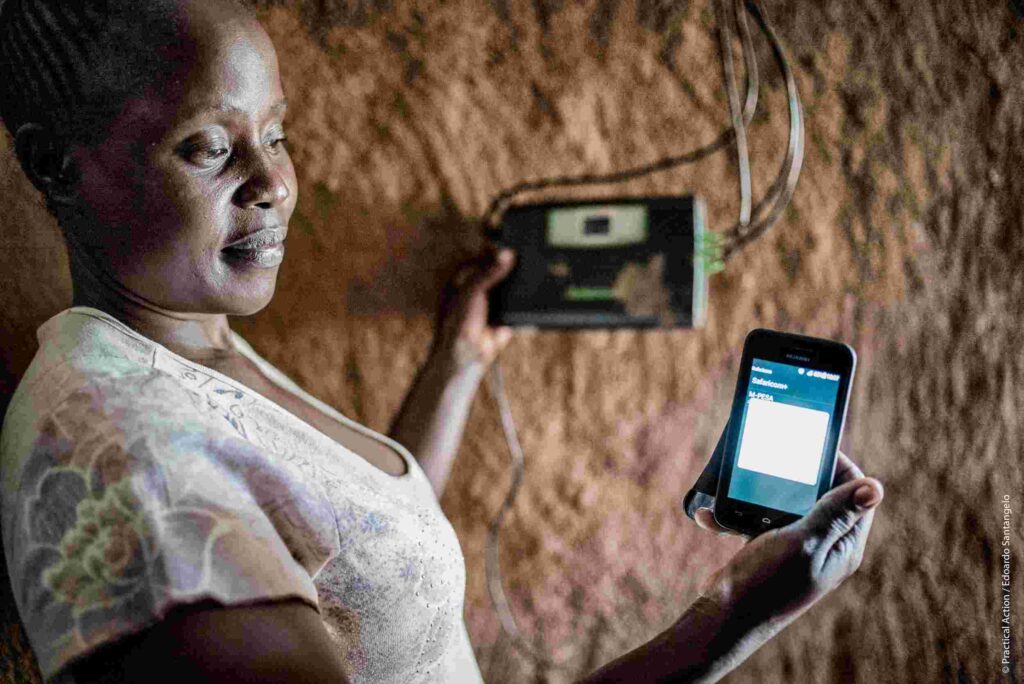Top three benefits:
- Lower the costs of customer acquisition (for PAYGo cross-selling).
- Better manage credit portfolio risks (for both), specifically once someone has paid off one product, they are low-risk candidates for a second loan (for PAYGo cross-selling).
- Offer customers more products such as improved cookstoves, biodigesters, water filters and solar fridges (for both).
Top three challenges:
- Adding new product categories might require substantial investments in marketing, agent training, and after-sales support.
- Scaling of PAYGo sales requires access to working capital, and wide adoption of mobile money among customers.
- Categories other than solar energy present fewer PAYGo enabled options to choose from.

Photo credit: Practical Action and Edoardo Santangelo
Trailblazers:
- D2D Pro was a UK aid funded project in which Bopinc piloted cross-selling of solar home systems and bioethanol cookstoves in Nigeria (read more).
- M-Kopa has sold water tanks to customers that previously bought their solar products. M-Kopa also started selling PAYGo smartphones.
- Supplied by SunCulture, Bboxx in Togo started to deploy solar irrigation pumps using the same PAYGo model they used for their Solar Home Systems (read more).
- Gas360 in Nigeria has added PAYGo to their LPG gas cylinders.
- Let us know who else should be on this list
Resources:
- BFA’s study of payment behaviour, churn, and customer lifetime value from the PAYGo workstream of their FIBR Project.
- World Bank’s solar energy 2022 state of sector report investigates why PAYGo and cross-selling are such an important trend.
- PaygOps’ report debunks myths about PAYGo and explores use cases for new product categories.
- CGAP explores how PAYGo goes beyond solar.
